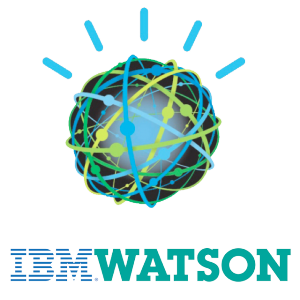Starting from being a prominent area of scientific research, artificial intelligence is now entering the world of business applications where it can be applied in a concrete manner. Yes, you still have to tie your own shoes! And yes, you still have to show up for work in the morning!
Some of the prominent examples of the adoption of AI in business applications include the recommendations on Amazon and voice-driven digital assistants such as Alexa, which have become part of many of our daily lives.

Concurrently, you have technologies such as IBM Watson and Google Deep Mind starting to drive applications in sectors such as finance and health care. But despite that, it is true that we are in the early days of AI adoption in the enterprise. As long as we keep Skynet at bay and those ICBMs offline!
Owing to enormous advances in terms of computational power, Big Data, and developments in neural networks, AI, machine learning, and deep learning are poised to make significant inroads into everyday business applications.
Talking terms and adoption
The terms AI, machine learning, and deep learning are at times used interchangeably, but they are actually three distinct but related areas. AI denotes the broad idea of employing systems or machines to carry out activities in a manner that taps machine sources of intelligence.

On the other hand, machine learning is a specific application of AI where a system learns to operate independently based on the actual data being gathered. Deep learning is a subset of machine learning that applies several layers of neural networks and algorithms in order to solve highly data intensive, complex problems.
According to recent research from Forrester, only 17 percent of the respondents indicated that they would be expanding or implementing AI systems over the next year. However, a concrete 55 percent said that they have specific intent to invest in AI technology over the same year.
Almost half of the respondents polled mentioned that they hadn’t yet seen results from AI-related initiatives. The vast majority of respondents mentioned that they plan to invest or will invest less than $1 million in such efforts through the year 2018.
AI takes time and the nature of adoption
One significant factor that is slowing the adoption of AI in the enterprise is the complexity of the learning stack associated and the fact that most IT leaders still do not even understand the complexities of the AI area, let alone getting to the point of knowing how to apply AI technologies to solve real world, practical business problems.
The first round of interest from business areas has been centered on employing AI-based technologies to improve the quality of customer support and support better customer experiences.
Approximately 57 percent of the respondents to the Forrester survey have quoted improvement in the customer experience as a primary reason for using AI, with about 37 percent mentioning that they are either planning to implement or are implementing technology related to intelligent assistants. About 35 percent of the respondents mentioned that they are actively working in areas around cognitive products for customers.
Another area where AI, and more specifically machine learning, is starting to have a strong impact is in the detection of cyberattacks, thus permitting IT security professionals to adopt a more proactive posture with regards to security.
Sales and customer service is one more area where AI technologies are starting to show tangible results. In a survey conducted by Accenture, about 40 percent of companies indicated that they are currently using machine learning to improve performance with regards to sales and marketing.
AI at work

The company Elsevier is exploring the usage of AI-driven applications with regards to cybersecurity software, CRM, and customer support. The focus with regards to CRM is in improving lead generation, whereas the focus with regards to customer support is to do with knowledge management systems and chatbots designed to specifically improve the quality of customer support.
Elsevier is also using AI to monetize new product offerings and improve on existing ones. In a particular example, AI was used to extract medical images from a database that was several decades old. Not only were the images extracted, the material was classified and annotated, made searchable, and repackaged as a new offering in a matter of a few weeks. Without the use of AI, an undertaking such as this would have involved literally several years of effort. Not worth it! But AI makes things like this possible.
According to the leadership at Elsevier, the key to enabling more widespread adoption of AI is to ensure that the tech team gains a comprehensive understanding of the organization’s data and also ensures that staff are trained on newly emerging AI related capabilities.
Intelligent banking applications
Capital One has gone significantly down the journey of tapping AI and machine learning to transform its banking systems and customer service. Last March, Capital One announced that Amazon Alexa was being integrated into its systems so as to set up a foundation for new-age services that would enable remote banking for customers in a hands-free manner across environments.
Capital One also has plans to tap machine learning to detect fraud, identify new opportunities for business, and improve customer service. Capital One is also tapping machine learning to identify a neighborhood’s unique characteristics that are causing residents to move in or move out. It is doing this so as to optimize its underwriting process for home loans in both existing and new markets.
Restaurant applications – TGIF
TGI Fridays has implemented advanced machine learning capabilities to improve the customer experience. The capabilities have been used to deploy conversation-based tools for improving the customer experience. After deploying these tools, TGIF noticed an almost 500 percent increase in customer engagement on social media channels.
It has also seen a significant increase in conversations that initiate commercial activities such as making reservations through social media platforms or ordering food.
The same AI-related capabilities also have the ability to help TGIF develop product offerings in the future (how about some pumpkin pie!?). The kind of insights that are being gathered by the AI-driven tools can help TGIF understand customer preferences at a deeper level.
AI is being increasingly well regarded and implemented as part of the IT systems at companies for a variety of applications. Uptake is only expected to increase as time goes by.



